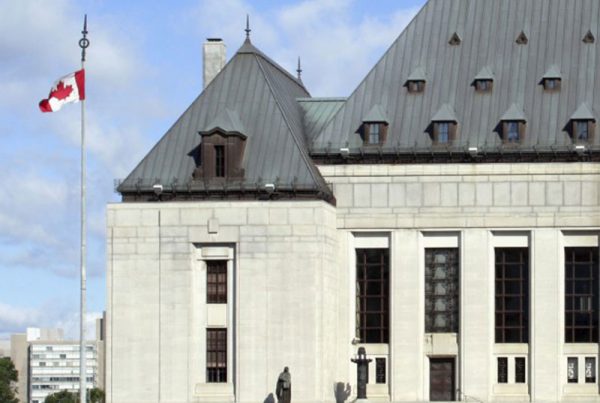OCT. 7TH UPDATE: Check out our letter to Elections Canada here.
An election is a time when we should be encouraging debate and discussion from all corners of society, not stifling it. But Elections Canada has done just that by chilling Canadian charities from talking about climate change. It’s a blunderous misinterpretation of the law and an unconstitutional restriction on free speech. Here’s the story.
According to recent reports, environmental groups have been warned by Elections Canada that discussing the dangers of climate change during the upcoming federal election might be deemed “partisan activity” under federal election law. In other words, claiming that climate change is a real phenomenon might be seen – by Elections Canada – as taking a side in the election.
While the climate issue is clearly one of importance to many (perhaps all) voters and candidates, it is now not simply an election issue but, apparently, a partisan one. Elections Canada has said the concern about partisanship flows from the fact that Maxime Bernier, leader of the People’s Party of Canada (PPC), has expressed doubts about the legitimacy of climate change. Presumably then, any statements suggesting climate change is real are anti-PPC, and thus partisan.
This shocking warning from Canada’s electoral regulator demonstrates in stark terms how problematic the regulation of election advertising can be. While the United States may provide a cautionary tale about what happens when money is allowed to dominate the political process, it is possible that Canada has swung too far in the other direction, at the expense of free expression and meaningful democratic debate.
Elections Canada is responsible for ensuring that political parties and third parties do not violate the Canada Elections Act which places restrictions on political advertising by both political parties and “third parties” (e.g. community groups, unions, etc). Under the most recent amendments made to the law, third party restrictions in the pre-election period (which started on June 30 and will end the day before the election writ is dropped) were broadened when compared with the rules around advertising by political parties. However, even before those changes were made, political parties had a significant monopoly on electoral communications.
When third party advertising restrictions were unsuccessfully challenged many years ago by then President of the National Citizens’ Coalition Stephen Harper, the restrictions were such that a third party simply could not launch an effective national campaign.1 The maximum amount a third party could spend nationally was $150,000.00, but the evidence showed that it cost almost three times that for a one-time full-page ad in major Canadian newspapers. The limit that could be spent in a single electoral riding was so low that an organization could not even send mail to all constituents in that riding without exceeding it. The limits have gone up since the Harper case, but so have costs. Moreover, the landscape of advertising has changed considerably, with social media playing a much larger role with a much different cost structure.
In a few short weeks the federal election will be upon us, and like all elections, there is a great deal at stake. We all need information to ensure that our democratic choice is exercised with as much knowledge of the potential consequences as possible. Ironically, getting good information is increasingly challenging in what is supposed to be the information age. We are inundated with so much data and content from such a huge variety of sources that it can be difficult to know what is reliable and what is suspect. But this doesn’t justify restricting expression absent compelling evidence that it is necessary to do so. It certainly doesn’t justify setting arbitrary rules and limits that don’t have a clear basis in fact.
As the latest Elections Canada story shows, our current rules around spending are difficult to interpret and thus difficult to abide. The limits appear arbitrary and are set by elected officials who may stand to benefit from restricting what “outsiders” can say during the election period. We may all agree that explicit campaigning for one party or candidate or another should be regulated, but when we fold in “issue advocacy” and then try to discern when an issue becomes partisan, the waters get muddied. As the U.S. Supreme Court once said, “What separates issue advocacy and political advocacy is a line in the sand drawn on a windy day.”2 If Elections Canada’s warning to environmental groups is any indication of where the line might be drawn, it looks like we may be in for some rough weather this election season.
1. Harper v. Canada, 2004 SCC 3.
2. McConnell v. Federal Election Commission, 540 U.S. 93 (2003) and Federal Election Commission v. Wisconsin Right to Life, Inc., 551 U.S. 449 (2007).
– Cara Zwibel, Director of Fundamental Freedoms Program, czwibel@ccla.org
About the Canadian Civil Liberties Association
The CCLA is an independent, non-profit organization with supporters from across the country. Founded in 1964, the CCLA is a national human rights organization committed to defending the rights, dignity, safety, and freedoms of all people in Canada.
For the Media
For further comments, please contact us at media@ccla.org.





